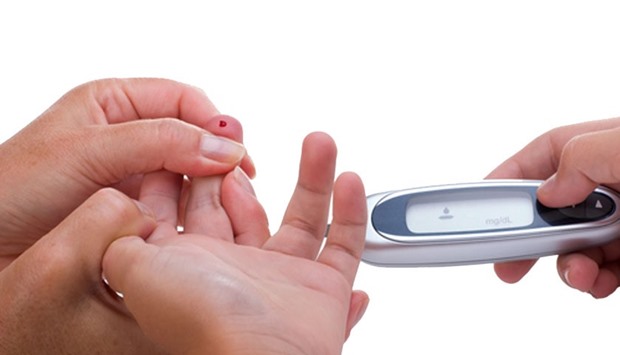The prevalence of diabetes in Qatar is continuing to increase with the recent statistics indicating that about 17% of the Qatari adult population is thought to have the chronic disease and that an additional 11% of the population is pre-diabetic.
About 85% of the diabetic children treated at Hamad General Hospital( HGH) have Type 1 diabetes. Type 1 diabetes is usually first diagnosed in children and young adults. Type 2 diabetes occurs when there is a deficiency in insulin, or when the body does not respond correctly to insulin, and is caused by factors such as family history and genetics, low activity level, unhealthy diet and excess body weight.
Children with type 1 diabetes are normally diagnosed in the paediatric emergency department. They are transferred to the Paediatric Diabetes Care Programme at HGH within hours of arriving at the emergency department.
Dr Fawziya Ali Khalaf A al-Khalaf, head of Paediatric Diabetes Care Programme says caring for diabetic children is a balancing act that parents must master. “Parents and caregivers need to understand the severity of their child’s condition, but the multi-disciplinary team must be sensitive and ensure they don’t scare or overwhelm the family with information. Educating the entire family is a key component to treating children with diabetes,” she stressed.
“Family support is an integral part of well-managed diabetes care and the diagnosis of diabetes in a child may change the entire family dynamic. The first step in treating the child is building a relationship with their family, or primary caregivers to ensure they are receptive to receiving the information they will need to care for the child,” said Dr al-Khalaf.
“We often need to educate people that diabetes isn’t a transient disease. Ensuring that family members are educated on appropriate diabetes management is the key to developing a management routine,” said Dr al-Khalaf. “Our multi-disciplinary team will teach the parent or caregiver about diabetes. We help families create, and use, a diabetes management plan.”
Type 1 diabetes demands a life-long commitment that requires blood sugar monitoring, insulin, healthy eating and regular exercise. As a child grows and changes, his or her diabetes management plan also should change.

About 85% of the diabetic children treated at Hamad General Hospital( HGH) have Type 1 diabetes.
Hamad Medical Corporation’s (HMC) Diabetes Care Programme cares for more than 1200 diabetic children, making it one of the largest centres in the region dedicated to the treatment and study of diabetes in children.
